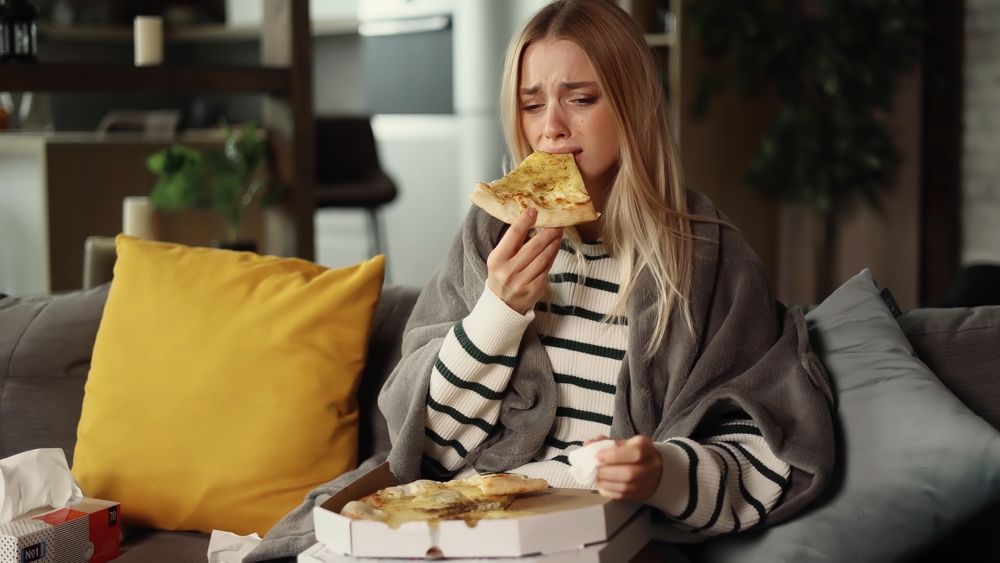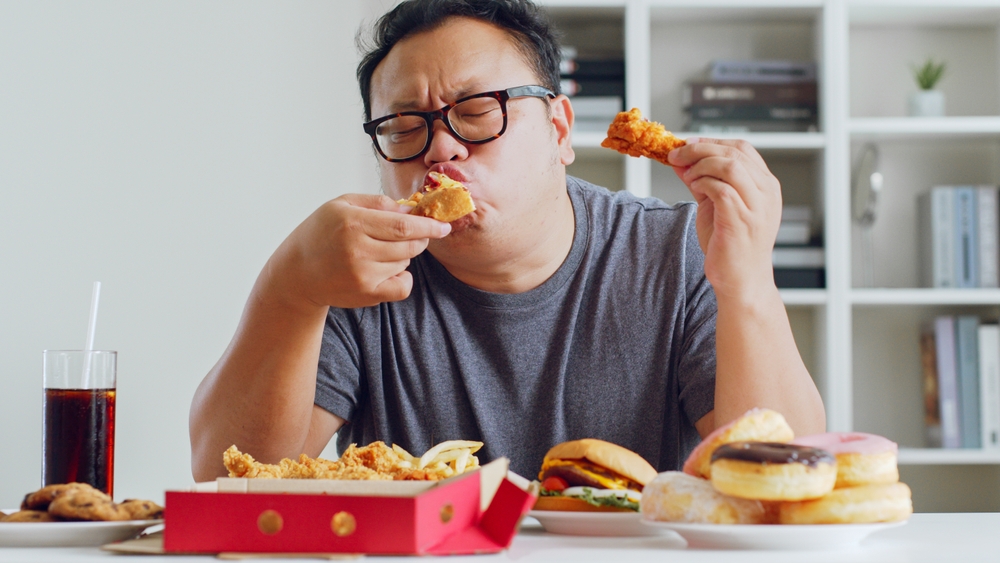Last Updated:
July 29th, 2025
Eating Disorders | Symptoms, Types and Treatment
Despite the amount of information now available, working your way around eating disorder advice can still feel overwhelming. You may be unsure whether what you or someone you love is experiencing counts as an eating disorder. And even if you are certain, figuring out what to do next is far from easy.
This page helps break things down.
Here, you’ll find information on the different types of eating disorders, links to specialist pages, and guidance on what treatment options exist. If you’re worried something might be wrong, this is a good place to start.

What actually is an eating disorder?
Eating disorders are serious and complex mental health conditions. They aren’t about food in isolation. They’re about how food, control, self-worth and stress interact in ways that affect both your body and your mind.
For some, eating disorders can involve obsessive control over food intake. For others, it can mean eating large amounts in a short space of time. There are also types of eating disorders that focus less on weight or appearance and more on texture or fixations.
While every eating disorder is different, what they have in common is how they impact daily life and health. Left untreated, they can cause serious physical and emotional complications. But with the right support, recovery is possible.
Struggling with an addiction? If you are ready to seek help, reach out to us today, and a member of our compassionate team will help you find the best option for starting your recovery journey.
What types of eating disorder support are available?
Below you’ll find a breakdown of recognised eating disorders. Each one links to a detailed page explaining the condition and available treatment options:
Anorexia
Anorexia is marked by severe restriction of food, intense fear of weight gain and distorted body image. Rehab for anorexia provides therapeutic care, nutritional support and a safe space to rebuild a healthier relationship with food.
ARFID
ARFID involves avoiding certain foods based on texture, colour or smell rather than body image concerns. Treatment focuses on gradual exposure to new foods, therapy and nutritional guidance to restore variety and confidence.
Bulimia
Bulimia involves cycles of binge eating followed by purging behaviours. Rehab provides structured support to interrupt the cycle, address triggers and stabilise both physical and emotional health.
Compulsive overeating
Compulsive overeating often occurs as a response to stress or emotional pain. Rehab includes therapy to explore the emotional drivers of eating, nutritional education and relapse prevention.
Binge eating disorder
BED involves frequent episodes of uncontrollable eating without purging. Treatment provides strategies to manage urges, process emotional triggers and create structure around meals.
Sugar addiction
Sugar addiction is characterised by strong cravings and dependency-like patterns. Rehab helps stabilise blood sugar, reduce reliance on sweet foods and uncover what drives the behaviour.
Night eating disorder
This disorder involves frequent eating at night, often linked to stress, insomnia or emotional struggles. Rehab aims to regulate sleep cycles, reduce nighttime urges and improve mental wellbeing.
Orthorexia
Orthorexia is an obsession with eating “pure” or “clean” foods. Treatment focuses on relaxing rigid rules, reintroducing variety and using therapy to explore the deeper need for control.
Purging disorder
Purging disorder involves vomiting or laxative use without bingeing. Rehab helps challenge the behaviours and beliefs around food, body image and emotional regulation.
Rumination disorder
This condition involves regurgitating and re-chewing food. Treatment focuses on retraining physical responses, improving nutrition and exploring behavioural triggers through therapy.
UFED
Unspecified Feeding or Eating Disorder includes symptoms that don’t fit other categories but still cause distress. Rehab offers tailored support based on the person’s unique experience and difficulties.
PICA
Pica involves eating non-food substances such as dirt or soap. Treatment includes behavioural therapy and medical monitoring to address both physical risks and underlying causes.
OSFED
OSFED includes a range of disordered eating behaviours that don’t meet full diagnostic criteria for other disorders. Rehab provides individualised treatment to help reshape thoughts, patterns and coping strategies.
Food addiction
Food addiction involves compulsive consumption of certain foods despite negative consequences. Treatment addresses cravings, emotional regulation and long-term habit change.
Do I have an eating disorder?
This page isn’t here to diagnose you; only a qualified professional can do that. But if you’ve noticed patterns around food that feel hard to explain or even harder to stop, it may be worth checking in with someone.
Ask yourself:
- Do I think about food more than I want to?
- Am I eating to feel better, or not eating to feel in control?
- Is shame, guilt or secrecy part of my routine?
If any of those strike a chord, reaching out for a conversation is a strong and valid next step.
When should I consider rehab?
Eating disorder rehab isn’t only for the most extreme cases. If food, body image or eating patterns are interfering with your day-to-day life, even in small but consistent ways, rehab can help bring things back into balance.
You might also consider rehab if:
- You’ve tried other types of treatment and are still struggling.
- The eating disorder is affecting your health, relationships or mental wellbeing.
- You’re hiding behaviours from others or feel a growing sense of shame around eating.
Taking a break from daily pressures in a residential setting can allow you to heal without distraction. It creates room to try new patterns, learn new strategies and build healthier habits — slowly, carefully and without judgement.

How are eating disorders treated?
Eating disorder treatment involves a combination of therapy, nutritional support and ongoing recovery planning. Some people benefit from outpatient sessions, while others need residential rehab where they can fully focus on recovery.
A typical eating disorder treatment programme may include:
- CBT (Cognitive Behavioural Therapy): To challenge the thinking patterns behind eating disorder behaviours.
- DBT (Dialectical Behavioural Therapy): For managing overwhelming emotions and impulsive reactions.
- Individual counselling: Where personal issues around food, control or identity can be explored in depth.
- Group therapy: To connect with others facing similar struggles and reduce isolation.
- Nutritional counselling: Helping restore healthy food habits and repairing the relationship with food.
- Holistic therapies: These may include yoga, art or mindfulness, helping reconnect the body and mind.
All of this is done with support from trained professionals who understand how deeply these disorders run.
The next step
You don’t need to wait for a specific moment, milestone or diagnosis to get help. If something feels off, that’s already enough of a reason to talk to someone.
Eating disorders can shrink your world. They reduce freedom, limit joy and turn everyday moments into calculations. But that doesn’t have to be permanent. With the right support, it’s possible to regain control.
If you’re ready to take that first step or want to explore your options, Addiction Helper is here to talk, free of charge and with you in mind first.
Our compassionate team are ready and available to take your call, and guide you towards lasting the lasting addiction recovery you deserve.

